The race is on to become the Republican presidential nominee and face President Joe Biden in 2024 — and the field appears to be set.
So far, 10 candidates are vying to spend the next several months battling for votes across the country to secure the party’s nomination. For most of those candidates, there’s an added challenge: toppling the presumed frontrunner, former president Donald Trump, who is seeking a political comeback despite mounting legal perils.
Nominees need to secure a minimum of one per cent support in national polls and receive campaign contributions from at least 40,000 unique donors to qualify for the first Republican primary debate on Aug. 23 in Milwaukee, Wisc.
Here’s a look at the field so far, what policies they support, and how they are faring among voters.
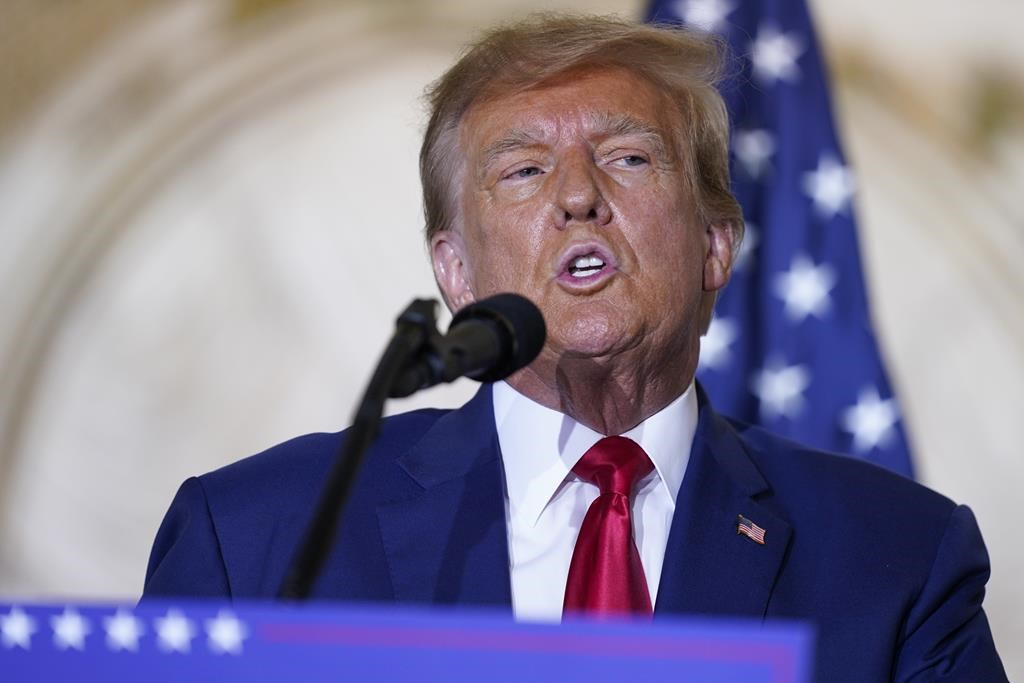
Donald Trump
Resumé: President (2017-2021)
Candidacy declared: November 2022
FiveThirtyEight polling average: 54.7%
Morning Consult polling average: 56%
When Donald Trump announced his candidacy last November, the odds appeared to be stacked against him. His chaotic presidency had ended in a torrent of lies about his election loss to Joe Biden that culminated in the Jan. 6, 2021, assault on the U.S. Capitol by Trump supporters. He faced mounting legal scrutiny for his efforts to overturn the election results and his alleged mishandling of classified documents at his Mar-a-Lago resort in Florida.
And Republicans had just underperformed in the November midterm elections after several Trump-endorsed candidates lost their races, prompting party leaders to openly call for a different candidate to seek the White House in 2024.
Yet Trump’s early candidacy has appeared to benefit him. With no declared opponents for months, he was able to corner the market for campaign donations while negative narratives began to cement around potential candidates before they even entered the race.
His legal troubles haven’t appeared to hurt him: despite his historic indictment in New York over hush-money payments to cover up an alleged affair during the 2016 campaign, and a federal indictment over the classified documents case, he has continued to draw in high levels of fundraising.
More hurdles await Trump, including a potential indictment in the classified documents case, and it’s possible his frontrunner status can be threatened now that other candidates are officially running. But for now, the question is whether the Republic nomination is Trump’s race to lose.
Notable policy positions: Hardline anti-immigration views, including a potential restart of his family separation policy; futuristic “Freedom Cities” built on federal land and focused on airborne transportation and rural-urban connections; no stance on federal abortion ban beyond willingness to negotiate.
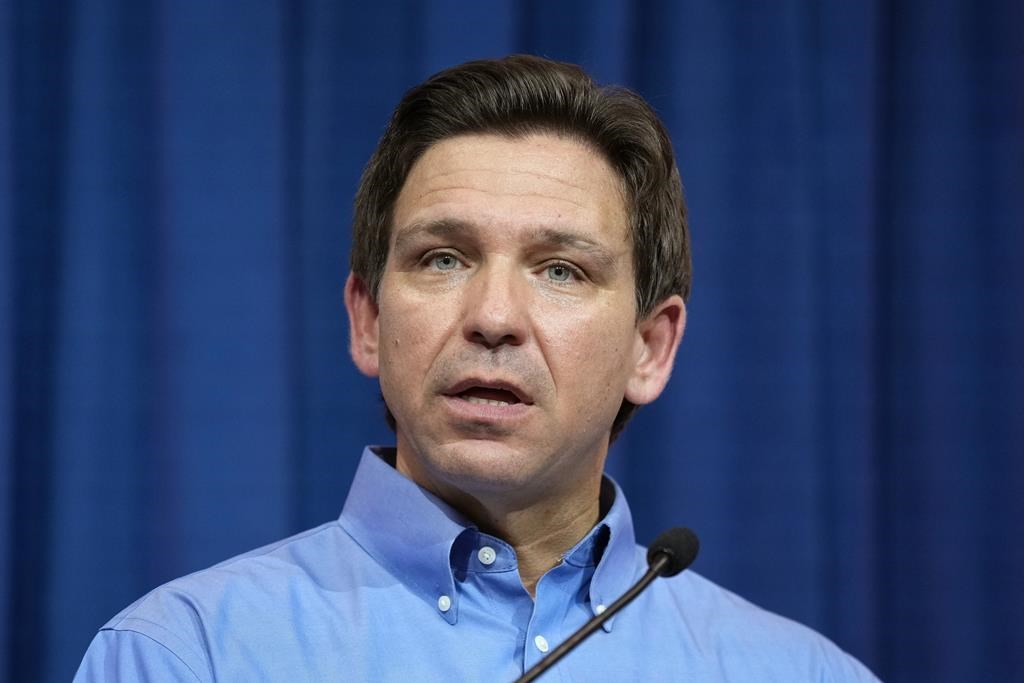
Ron DeSantis
Resumé: Governor of Florida (2019-present), U.S. House of Representatives (2013-2018)
Candidacy declared: May 2023
FiveThirtyEight polling average: 21.5%
Morning Consult polling average: 22%
Ron DeSantis overwhelmingly won re-election as Florida’s governor by pursuing a deeply conservative agenda in the one-time battleground state.
Almost immediately, Republican donors began making the case for DeSantis as a safe alternative in comparison to Trump. But DeSantis’ apparent status as the new Republican standard bearer has seemed to weaken in the months since.
He refused to directly respond to Trump’s constant attacks and became embroiled in a fight with Disney that has proven to be unpopular, while signing divisive legislation like a six-week abortion ban.
By the time he formally entered the presidential race in May, his polling average had dropped by double digits while Trump widened the gap.
DeSantis’ campaign launch also faced technical difficulties thanks to a glitchy Twitter Spaces event. As he pitches his “Florida blueprint” on hot-button issues like guns and education, it remains to be seen if the governor can recover and pose a real threat to Trump.
Notable policy positions: Ending diversity and inclusion training and gender ideology discussions in all publicly-funding institutions (the so-called “war on woke”); opposition to public health restrictions and mandates for vaccines.
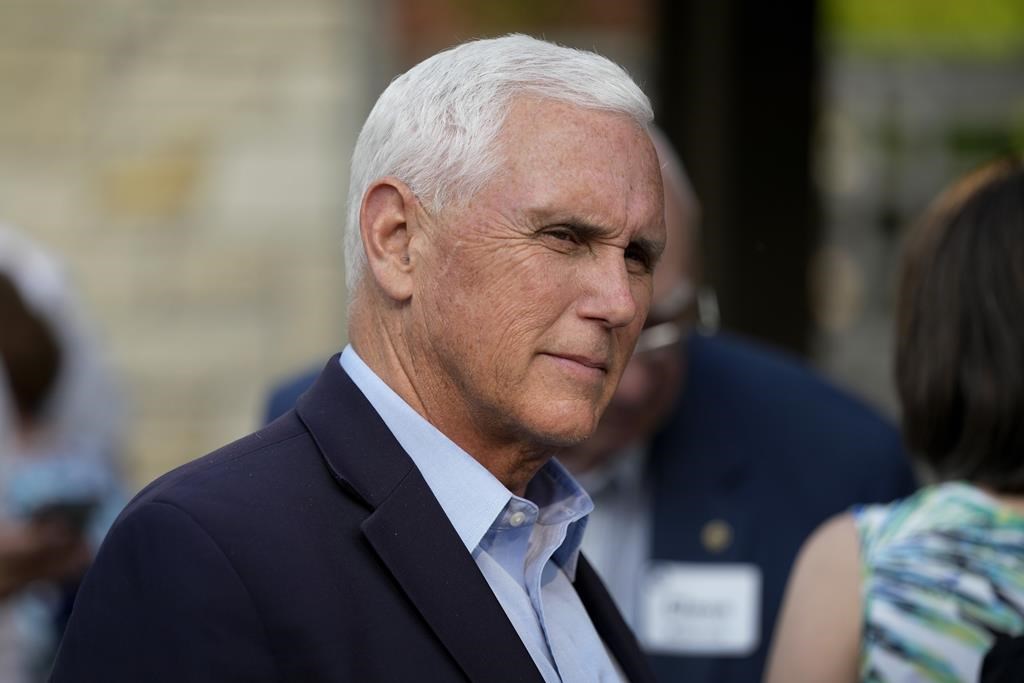
Mike Pence
Resumé: Vice-president (2017-2021), Governor of Indiana (2013-2017), U.S. House of Representatives (2001-2013)
Candidacy declared: June 2023
FiveThirtyEight polling average: 5.3%
Morning Consult polling average: 7%
After years serving as vice-president to Trump, Mike Pence’s relationship with him was broken on Jan. 6, 2021, when Pence’s life was threatened by Trump supporters angry over his refusal to reject the election results favouring Biden.
Since then, Pence has been clear that while he is proud of the pair’s White House track record, Trump was “wrong” to push Pence to ignore the Constitution for political gain.
Pence now has to walk a narrow path and try to win back the support of Trump voters who still blame him for certifying Biden’s win while rebuking Trump himself for the damage he caused after the election. As a devout Christian and staunch abortion opponent, he’s also counting on support from social conservatives and Christian voters to differentiate himself from his former boss.
Notable policy positions: Complete federal bans on medical and surgical abortions; supports Ukraine winning the war against Russia; fiscal conservatism including cuts to Social Security, Medicaid and other federal aid programs.
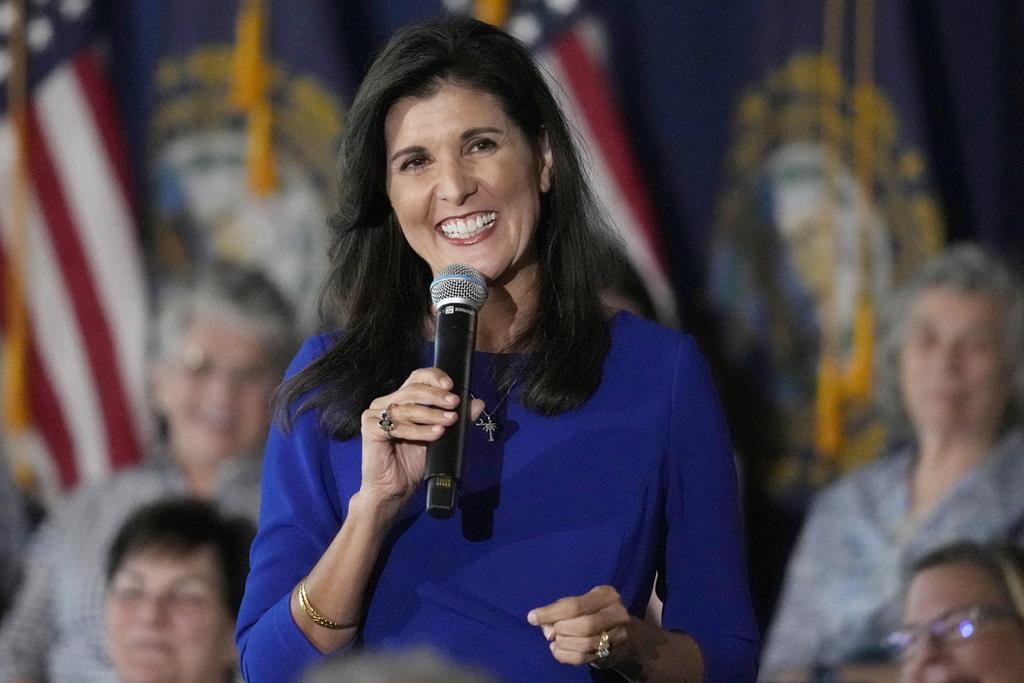
Nikki Haley
Resumé: U.S. Ambassador to United Nations (2017-2018), Governor of South Carolina (2011-2017)
Candidacy declared: February 2023
FiveThirtyEight polling average: 4.3%
Morning Consult polling average: 3%
The first major candidate to enter the race to counter Trump, Nikki Haley’s main pitch in the early days of her campaign has been her relative youth. At 51, she says she can usher in a new generation of Republican leaders more sympathetic to the concerns of younger Americans than 76-year-old Trump.
Beyond age — including a call for mental competency tests for aging politicians — Haley has pitched herself as a more centrist alternative to the leading candidates.
She has attacked both Trump and DeSantis for not supporting a Ukrainian victory over Russia and criticized Republican leaders in some states for pushing extreme anti-abortion legislation, including a failed death penalty provision in her home state of South Carolina. But she has also taken positions in the so-called culture wars: during a CNN town hall, she equated the rise of transgender athletes in school with suicidal ideation in teenage girls.
Notable policy positions: Opposes red flag laws that would take firearms from people deemed a threat to themselves or others; increased mental health funding; seeking consensus on federal regulation for abortions; ending tech exports to China.
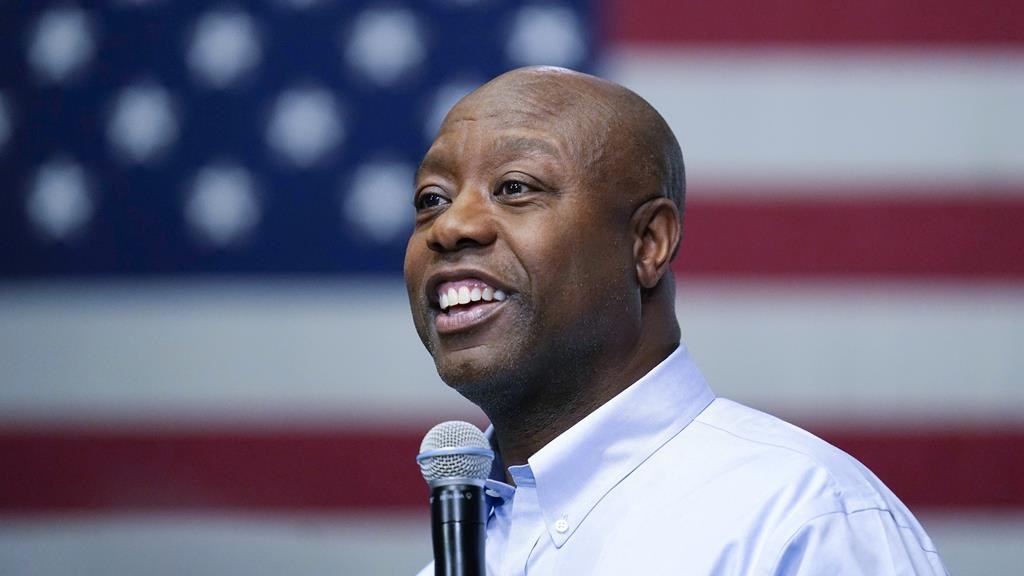
Tim Scott
Resumé: U.S. Senate (2013-present)
Candidacy declared: May 2023
FiveThirtyEight polling average: 2.5%
Morning Consult polling average: 3%
While most of the Republican candidates are focused on attacking Biden and listing America’s problems, Sen. Tim Scott is trying something different: positivity.
The only Black Republican in the Senate has used his life story — raised in poverty by a single mother in South Carolina, his grandfather was forced to drop out of elementary school to pick cotton — to make the argument that America is a land of opportunity far removed from the racism and bigotry that predates the civil rights era.
That pitch has come with few distinct policies, with Scott instead pointing to his record in the Senate supporting funding for historically Black colleges and universities and “opportunity zones” that used tax breaks to promote development in underserved communities.
Notable policy positions: “School choice” that allows parents to send children to schools outside their district without financial burdens; border security, including funding the southern border wall and declaring war on drug cartels.
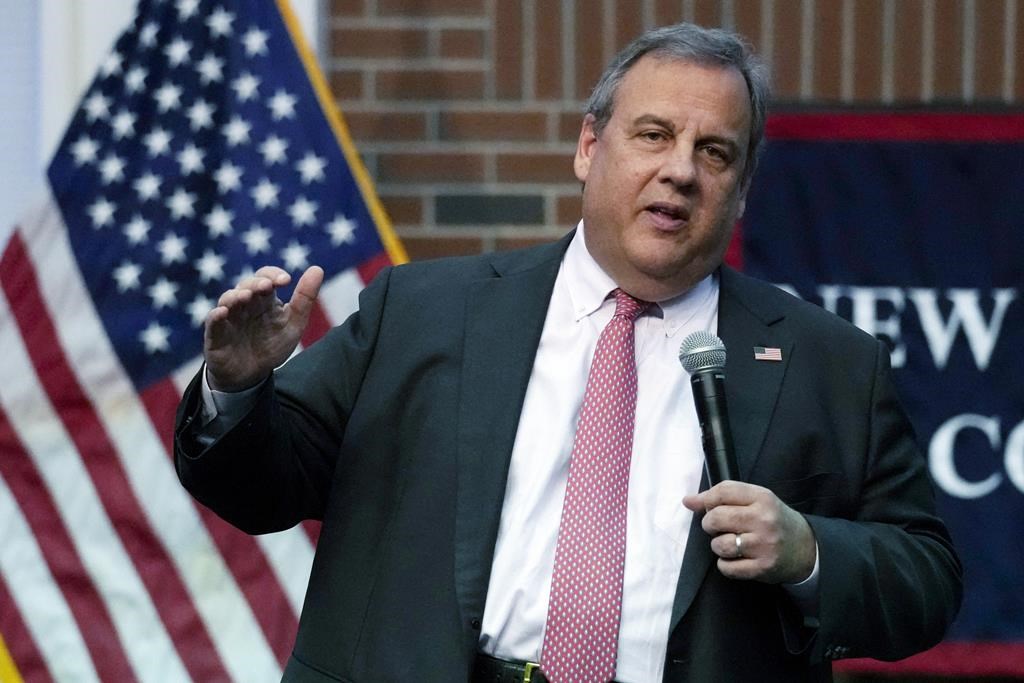
Chris Christie
Resumé: Governor of New Jersey (2010-2018)
Candidacy declared: June 2023
FiveThirtyEight polling average: less than 1%
Morning Consult polling average: 1%
Chris Christie was the first high-profile Republican to endorse Trump during the 2016 campaign, and continued to support him throughout even the lowest moments of his presidency.
That all changed after Jan. 6, and two years later, Christie is effectively staking his candidacy on ending Trump’s. So far, he has been willing to go much further than his rivals in attacking Trump and his term in office, calling him “self-serving” and a “failure” who used the White House to profit himself and his family.
Once a star of the GOP, Christie’s popularity eroded during his New Jersey governorship and he fell out of the 2016 race with even less. His reputation as a formidable debater may gain him some attention — so long as he can muster enough support make it to the debate stage.
Notable policy positions: None so far beyond promising to tell “the truth” to Republican voters.
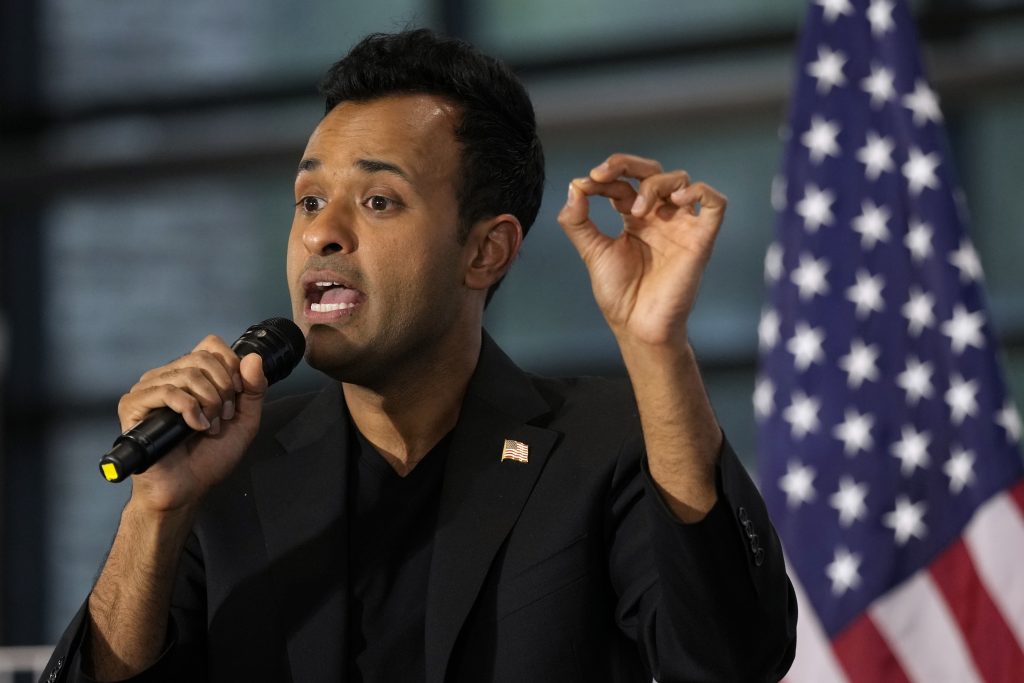
Vivek Ramaswamy
Resumé: Entrepreneur (2007-present), founder and CEO of Roivant Sciences (2014-2021)
Candidacy declared: February 2023
FiveThirtyEight polling average: 2.9%
Morning Consult polling average: 3%
The youngest candidate in the Republican race at 37, Vivek Ramaswamy has gained media attention for his “anti-woke,” pro-capitalism positions that rail against affirmative action in business and education.
He has also sparked criticism for his foreign policy views, arguing “major concessions” should be given to Russia in order to end the war in Ukraine.
That youthful bravado has won him support from some anti-establishment voters, but has yet to make a major dent in the race. His likely debate appearances may boost his standing and even challenge the leading candidates to respond to his proposals.
Notable policy positions: Raising the voting age to 25, with exceptions for military members, first responders or passing a civics test; term limits for non-elected government employees; abolishing or “rebuilding” federal institutions including the FBI and IRS.
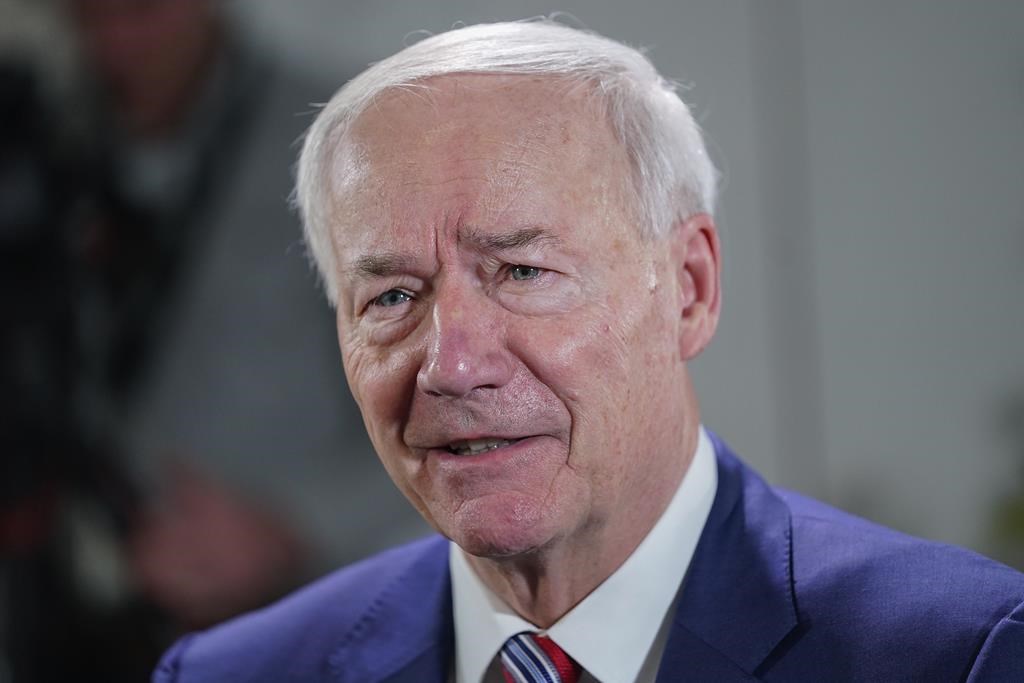
Asa Hutchinson
Resumé: Governor of Arkansas (2015-2023), U.S. House of Representatives (1997-2001)
Candidacy declared: April 2023
FiveThirtyEight polling average: less than 1%
Morning Consult polling average: 1%
Asa Hutchinson is making the centrist pitch to Republican voters, counting on support for a steady and experienced conservative instead of populist candidates like Trump and DeSantis.
As governor, he wasn’t afraid to counter his party — he vetoed a bill that banned gender-affirming care for transgender minors, which was overridden by the state legislature — but he also supported a total ban on abortion, only saying later he wished the bill included limits for rape and incest.
Polling suggests Hutchinson will have a tough road toward the top of the Republican field.
Notable policy positions: Additional funding for law enforcement; lower taxes; expansion of domestic energy resources.
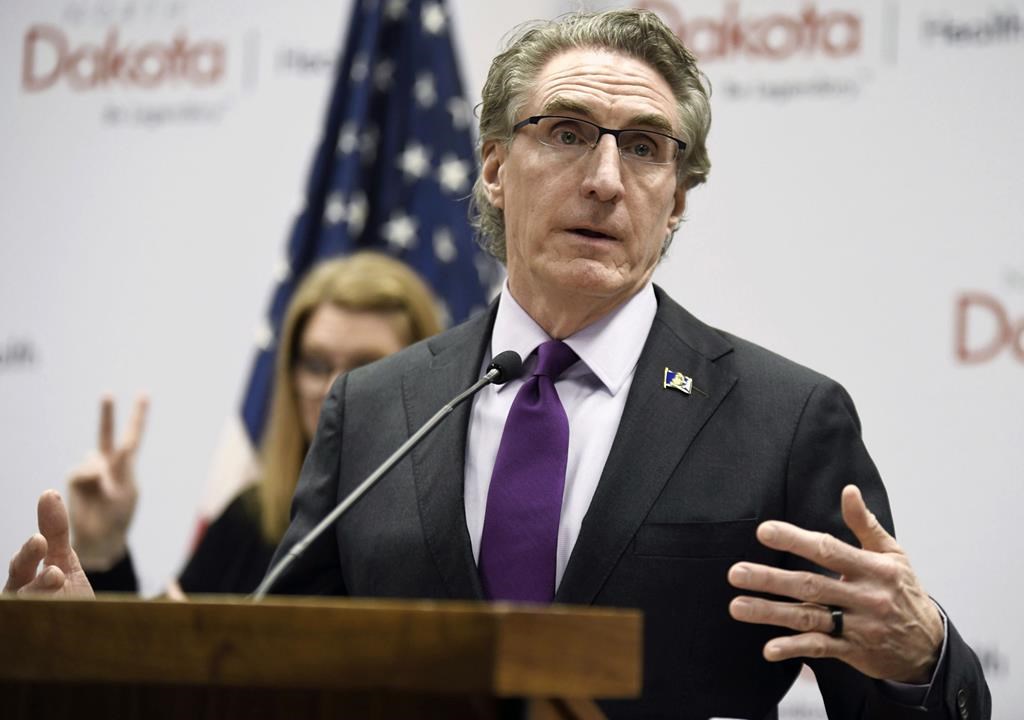
Doug Burgum
Resumé: Governor of North Dakota (2016-present)
Candidacy declared: June 2023
FiveThirtyEight polling average: Not included
Morning Consult polling average: Not included
The focus of North Dakota Gov. Doug Burgum’s campaign so far appears to be energy and infrastructure, two issues he said he’s successfully pursued in his state, which is one of the top oil producers in the U.S. He says he wants to bring “small-town values” to the rest of America.
The laws he signed this year include banning abortion with few exceptions up to six weeks’ gestation. Other laws prohibit schools and government agencies from requiring their employees to refer to transgender people by the pronouns they use, as well as barring transgender girls and women from competing in women’s sports.
Notable policy positions: Expand oil and natural gas production in U.S. and eliminate foreign energy purchases; bolster national security.
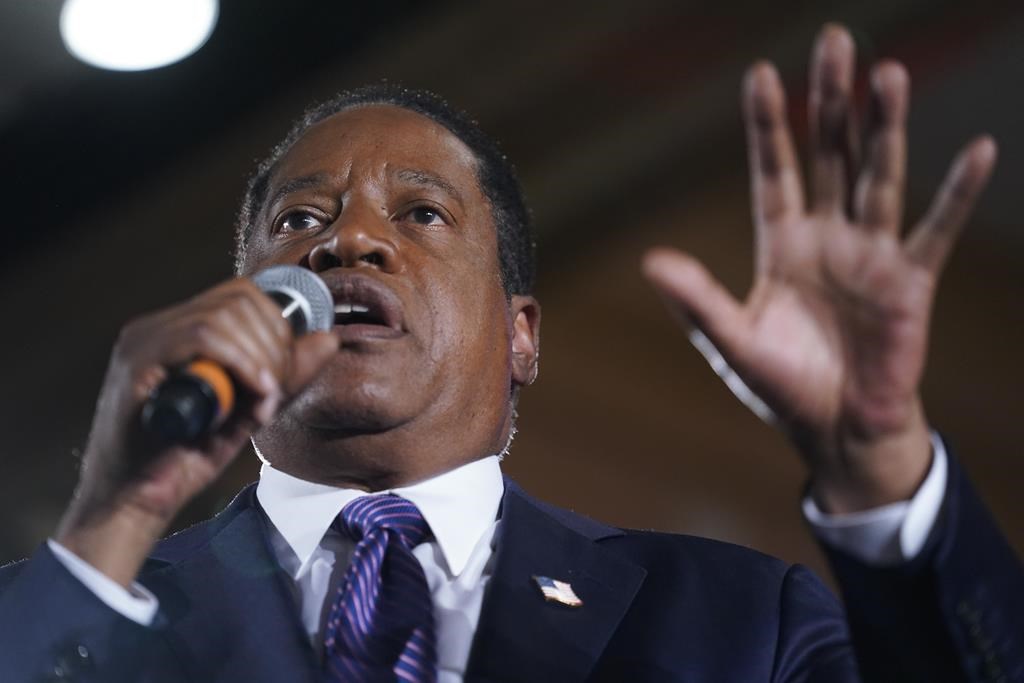
Larry Elder
Resumé: Conservative radio host and media personality (1993-present), lawyer
Candidacy declared: April 2023
FiveThirtyEight polling average: Not included
Morning Consult polling average: Not included
Larry Elder first entered politics in 2021 when he ran to replace California Gov. Gavin Newsom in a recall election, earning the most votes of any replacement candidate but failing to unseat the governor.
He gained attention with his support for Trump’s presidency and his far-right views on abortion and public health restrictions during the COVID-19 pandemic. He also alleged without evidence that there would be “shenanigans” in the vote before election day, but did not contest his loss.
In his campaign announcement, Elder said the experience of running for office — and the millions of votes he received — showed he had a message that resonated with voters.
Notable policy positions: Elimination of critical race theory and diversity and inclusion initiatives in education; revitalizing American cities through small business incentives, law and order and sheltering and treating homeless.








More Stories
What Trudeau’s podcast appearances say about the Liberals’ next ballot box question
ANALYSIS | In videos and podcasts, Poilievre and Trudeau are eager to explain themselves — at length | CBC News
South Africa celebrates 30 years since end of apartheid, but discontent grows – National | Globalnews.ca